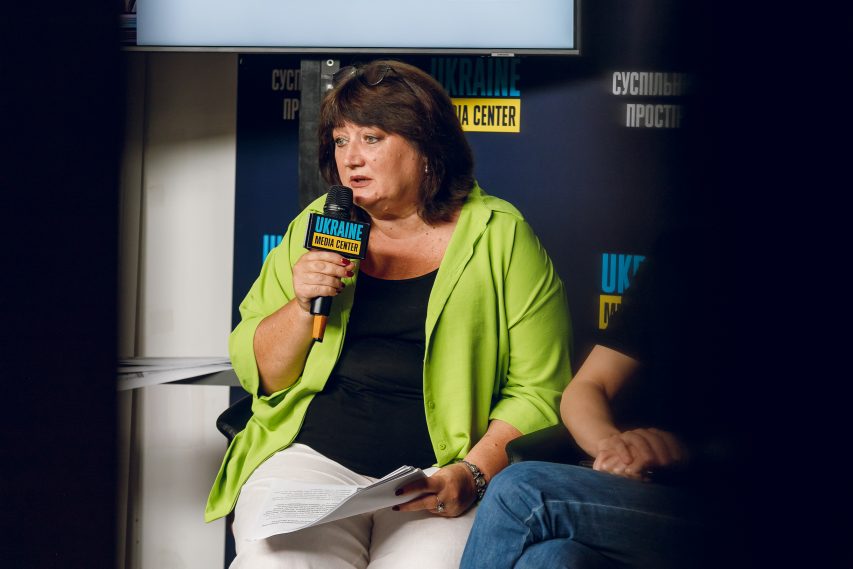
A 50-hour journey to a checkpoint, a missing Ukrainian passport to an unfinished contract: The story of a Crimean student’s quest to enroll in a Ukrainian university
A young woman, who has harbored dreams of moving to government-controlled Ukraine since she was 13, has finally taken steps to make her dream a reality by applying to a Ukrainian university. Her journey, however, was fraught with challenges that underscore the difficulties faced by other students from temporarily occupied areas seeking education in Ukrainian-controlled areas.
Valentina Potapova, Head of the Direction of National Advocacy Department at the Almenda NGO, revealed the poignant details of this student’s story—names and some biographical details have been changed for privacy reasons—during a recent discussion at Media Center Ukraine.
Since her teenage years, Yana had dreamed of escaping the occupation and studying in a free Ukraine. Her aspirations gained momentum when she met a student from a Kyiv university. By the time she graduated from high school, her dream had crystallized into a concrete plan, and in 2022, she began preparing for university admission. Only a small circle of close friends knew about her intention to enroll in a Ukrainian university.
In Crimea, currently under temporary occupation and with access to official Ukrainian websites limited—blocked entirely after the full-scale invasion—Yana relied on her friend Oleksii for information. She explored various methods, including VPNs, to gather details on the application process. Using External Independent Test handbooks, she prepared for the admission process, despite being unfamiliar with the National Multi-Subject Test.
In addition to mastering the school curriculum, Yana faced financial hurdles. The isolation of the russia-occupied territories meant that only private carriers could make the journey, making a single trip to the checkpoint cost 16,000 hryvnias and take over 50 hours.
During her journey, Yana’s bus was frequently stopped and checked. She came under particular scrutiny and was taken off the bus twice for questioning. Asked about her destination and route, she had to claim she was traveling to belarus; revealing her true destination of Ukraine would have resulted in her being denied passage.
After a grueling 50-hour trip, Yana reached the checkpoint only to be turned away by belarusian border guards, who refused her entry into Ukraine. Despite possessing a birth certificate that should have granted her passage, the guards claimed she lacked a valid reason for travel.
Facing this obstacle, Yana decided to seek assistance at the Ukrainian Embassy in Minsk to obtain a certificate of return. However, the embassy’s bureaucratic procedures were slow and costly, and she encountered a hostile reception from the staff. She described how embassy employees dismissed her documents disdainfully, attributing their unfriendliness to her holding a passport from the aggressor nation.
Seven days after she made it to the border, Yana finally crossed into Ukraine. Yet, her challenges were far from over. Upon reaching Ukraine, she went to the Educational Center to complete her university application, only to be told it was too late for her to be considered for state-funded admission and was advised to return to Crimea. Undeterred, Yana sought help from the Almenda organization, which began assisting her with the admission process.
“Throughout the process, we reached out not only to the Ministry of Education, but also to the Ombudsman’s Office and various other authorities to address the illegal actions of the Educational Center. The center’s conduct was clearly unlawful, but we ultimately managed to overcome these obstacles,” Potapova noted.
Despite her lower scores due to inadequate preparation time, Yana was admitted on a self-funded basis. However, she encountered another hurdle: to finalize her admission, she needed a Ukrainian passport, but she only had a birth certificate. She applied for a Ukrainian passport through the Migration Service, but the process was expected to be lengthy.
After meeting all the requirements, Yana was accepted into the program on a self-funded basis, but was unable to finalize her admission. Without a passport, she also struggled to find employment or manage her finances.
Potapova emphasized that Yana’s experience highlights the numerous difficulties faced by students from temporarily occupied territories seeking to study in Ukrainian-controlled areas.
Read more: https://mediacenter.org.ua/news
 Back
Back 